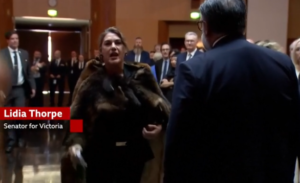
The Colorado Supreme Court has delivered a historic ruling, declaring former President Donald Trump ineligible for the White House under the U.S. Constitution’s insurrection clause. In a 4-3 decision, the court removed Trump from the state’s presidential primary ballot, setting the stage for a likely confrontation in the U.S. Supreme Court to determine whether the GOP front-runner can remain in the race.
This marks the first instance in history where Section 3 of the 14th Amendment has been utilized to disqualify a presidential candidate. The court, whose justices were appointed by Democratic governors, overruled a district court judge’s decision, asserting that Trump incited an insurrection during the Capitol attack on January 6, 2021.
The Colorado Supreme Court stayed its decision until January 4, pending a ruling from the U.S. Supreme Court. Trump’s legal team has vowed to appeal the disqualification immediately to the highest court.
While Trump’s loss in Colorado in 2020 by 13 percentage points may not significantly impact his chances in the 2024 election, the concern is that other courts and election officials may follow suit, excluding him from critical states. The deadline for Colorado officials to settle the issue is January 5, the date to print presidential primary ballots.
This ruling is part of a broader national trend, with dozens of lawsuits filed to disqualify Trump under Section 3. The clause, designed to prevent former Confederates from returning to government after the Civil War, disqualifies anyone who engaged in insurrection or rebellion against the Constitution.
The court’s decision relies on the argument that it would be inconsistent to bar former Confederates from low-level offices but not the presidency, as the 14th Amendment intended.
Trump’s legal team successfully persuaded a district judge that Section 3 did not apply to the president. However, the Colorado Supreme Court disagreed, emphasizing the gravity of the questions before them and their duty to apply the law without bias.
The ruling, though specific to Colorado, could have broader implications if other courts in competitive states follow suit. Trump’s legal battles continue, with four criminal cases, including federal and state cases in Georgia related to alleged election subversion efforts. The former president’s campaign has criticized the ruling, calling it “completely flawed,” and vows to swiftly file an appeal to the U.S. Supreme Court.
This decision adds another layer of complexity to the legal challenges Trump faces as he navigates the path to the 2024 presidential election.






Be First to Comment